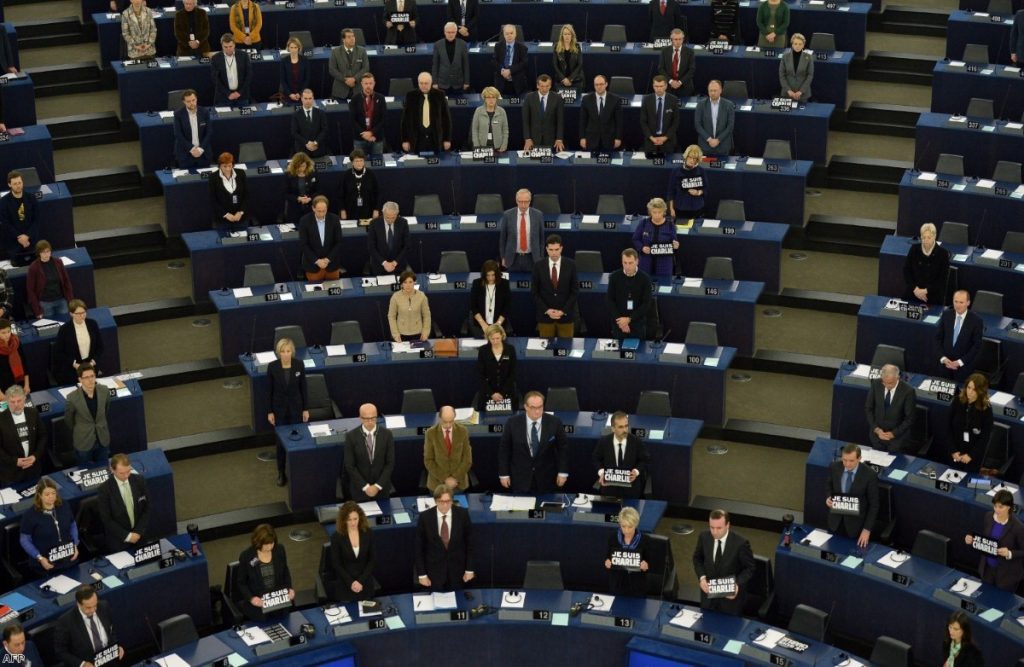Why is Europe refusing to change course on drugs?
Is Europe being left behind? Sometimes it feels that way. In the US, Colorado and Washington have regulated recreational cannabis use, with Oregon and Alaska following suit. Uruguay is doing the same. Latin America leaders across the continent are turning against the war on drugs.
So it can be somewhat dispiriting to see such little progress in Europe. As the world changes, it feels as if Europe is in stasis.
It's partly the fault of the EU. While cannabis reform falls under member state jurisdiction, European law builds on the UN drug conventions which have enforced the global war on drugs. These restrict the use of cannabis to medical or scientific purposes and obliges member states to make recreational use a punishable offence. So European countries have an extra layer of legality to break through if they want to pursue a more rational approach to the drug – they must bust through their national laws, continental laws and the UN convention.
That's doable. The US and Uruguay, as well as other countries like Bolivia or Jamaica, have shown you can push up against the UN conventions and often get away with it. That's especially true now that the US is redefining the convention in a way which allows its own experiments to abide by it. Any continent with countries offering decriminalisation, as Portugal and the Czech Republic have done, to harsh criminalisation, such as Sweden, clearly has room to manoeuvre. It just takes political will. Unfortunately, that's lacking at the national and continental level.


But a briefing paper by Tom Blickman of the Transnational Institute shows that below the surface there is a vibrant and optimistic push for drug law reform in Europe. At its heart is the Cannabis Social Club movement. Above them are the local and regional authorities who are advocating change. The ingredients are there for grassroots change, even if national authorities often refuse to recognise the spectacular failure of the policy they have been pursuing for 50 years.
The Cannabis Social Club movement started in Spain in the mid-90s as a way of side-stepping legal restrictions on cultivation. Spanish law doesn't penalise consumption and the Supreme Court has ruled that personal possession is not a crime as long as there's no intention of trafficking. 'Shared consumption' and cultivation for personal use are allowed if the plant is grown on a non-profit basis in a private place.

UK cannabis social clubs aim to normalise use of the drug
The first club was legally constituted in 2001 and was quickly followed by hundreds of others across Spain. The authorities, it goes without saying, hate it. Raids are common. The Madrid government has tried to clamp down, with Public Prosecutor's Office demanding investigations on the limits of right of association or whether the clubs are promoting the commission of a crime.
But the clubs are spreading in countries like Belgium, Slovenia, France and yes, even the UK. Britain's laws mean cultivation is not possible, but the clubs use social media and open meetings to organise campaign work and social events and generally attempt to normalise the use of the drug. Members get together to talk shop – usually revolving around fertilisers, self-medication and the campaign for decriminalisation.
Grassroots campaigns against the drugs war are mirrored at the municipal level. In Holland, there are efforts to regulate the supply of coffee shops. In Copenhagen, Berlin, Frankfurt, Hamburg and Cologne, local authorities promote coffee shop-like dispensaries with a regulated supply.
Blickman looks to the European Cities on Drug Policy initiative of the 90s as a way forward. Back then, Amsterdam, Frankfurt, Hamburg and Zürich sparked the network to life with the Frankfurt Resolution – a call for a more pragmatic, liberal approach to drugs. Other cities joined them. After all, they are the ones who must deal with the crime, wasted lives and preventable health problems of the drug war. Basel, Charleroi, Dortmund, Hamburg, Hannover, Rotterdam, Ljubljana and Zagreb joined and various harm-minimisation policies were initiated, such as heroin substitution, social inclusion, drug-consumption rooms and heroin prescription.
The Frankfurt Resolution called for a pragmatic approach to drugs
Now seems an apt time for a second cities programme, where shared experiences and best practices can be shared while pushing upwards to change policy at the national and continental level. As Blickman says:
"Drug policy reform is often a bottom-up process. As happened with harm-reduction, sooner or later the cannabis reform pressure building up from local levels will have to lead to legislative reforms at national levels, and the EU policy framework –and ultimately also the UN conventions – have to accommodate the policy trend towards legal regulation."
In the US, the national policy has had to change because of change at a state level. Now the country, which has long prided itself as a global policeman on drugs, is redefining the UN convention as a liberal document to justify the changes it itself has been forced to accept. A similar bottom-up process can take place in Europe, where leaders have proved too blind or indifferent to change course. It's up to grassroots movements and local authorities to force the issue. National leaders can follow.


